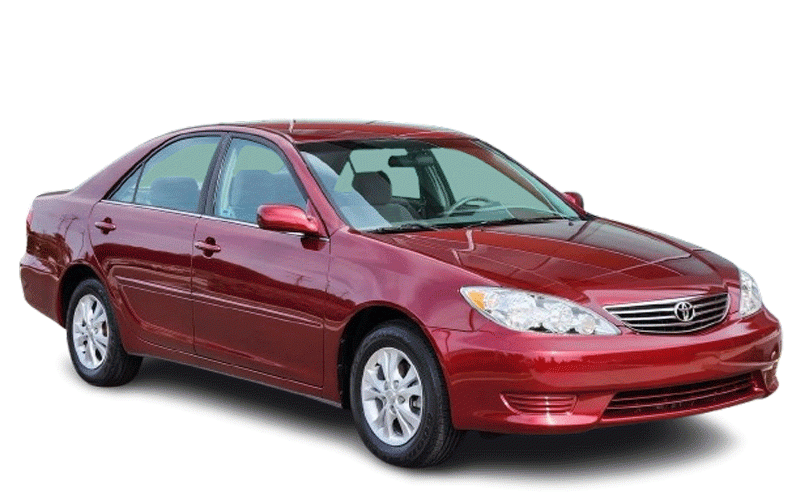
There is no one answer that fits the question whether a 20-year-old car is too old to buy or not. When one is deciding to buy a car they are either importing it or purchasing it from the local suppliers.
So in respect to a scenario where you want to import the car then the simple answer is “it is too old to buy” because the age limit in Zimbabwe restricts you to cars not older than 10 years.
However, when it comes to the cars already available within the country there are many dynamics that comes to play which we will elaborate in details today.
The age of a car can play a role in the motor vehicle lifespan, but it isn’t always the best metric to gauge the potential longevity of a vehicle.
Some older, well-maintained vehicles could be nearly as reliable as newer model years based on design, low usage and good maintenance history.
So assuming you want to buy the car using asset financing from the banks then trying to buy a 20-year-old car is a non-starter because the local financial institutions do not finance any car older than 10 years.
The banks prefer to finance cars that are relatively younger as that connects to better reliability informed by warranty, low mileage and spares availability.
In majority of financing terms, the car itself is the collateral for the loan and hence this logic by the trade finance departments of banks.
- Mavhunga puts DeMbare into Chibuku quarterfinals
- Bulls to charge into Zimbabwe gold stocks
- Ndiraya concerned as goals dry up
- Letters: How solar power is transforming African farms
Keep Reading
On the other hand, the younger generation and the female drivers are more likely not to be interested in the old model cars because the majority of them are manual transmission with limited functionalities and the driving experience is much more complicated than the modern cars.
My knowledge in this industry has taught me that nostalgia, simpler driving experience and the potential for easier maintenance and repairs attracts the older generation drivers to the older and familiar car models like the 20-year-old we are talking about today.
These cars evoke old memories of the past such as their youth or their significant milestones over the years.
This influences a constant market for some of these old car models for much longer which also comes with big savings on pricing.
This scenario ultimately results in the questions as to how old is too old for a used vehicle? Is there a definitive age cutoff when it comes to buying a reliable used car model?
I know for certain that the age of a car isn’t as important as its mileage, the car make or model, and overall reliability when it comes to a car’s lifespan.
A 20-year-old car that has traveled above the average annual kilometers driven per year of say 10,000kms is likely to be considered to be well past its prime time.
On the other hand, vehicles that have accumulated fewer kilometres per year than the annual average and are well-maintained could still last for many years before developing perennial mechanical issues.
So in real sense there isn’t a specific vehicle age where any car becomes so pronounced that it’s rendered completely useless.
I can, therefore, factually say that the age of a car may not be the best indicator of where a vehicle is in its lifespan, but mileage can help car buyers understand how many kilometres and years a vehicle has left on average.
However, it is also important to mention that the actual mileage to be used to judge the car’s remaining lifespan dependent on the type of car brand.
The mileage cannot be the same on Toyota, Mercedes Benz, Nissan, Mazda, BMW or Audi car models.
But one thing for sure is that the smallest cars by engine size will run for between 300 000 to 400 000km before developing a major problem. So the 400 000km is a fair mileage number to set as the end of a small car’s lifespan from an optimistic point of view.
I also observed that the bigger engine size private cars and trucks go as much as between 600,000kms to 900,000kms and again depending on the brands and models.
So the vehicle age does not correlate with mileage because the annual mileage a driver accumulates can vary.
My professional opinion then is that no car is too old to buy by merely using its year of manufacture (age) as the basis of your decision or judgement.
It is my advice that one should pay attention to the physical condition of the car, check its mileage if genuine and corresponding with the overall condition.
More importantly one should check if the engine has never been opened before and if it accident free in order to be able to give a full judgement on whether to buy it or not.
Assuming you find that the engine is not running perfectly perhaps as a result of being due for minor or major service and maybe the suspension system is not as good, but I still recommend you to consider that car because those issues can be addressed and you can use as part of the bargaining tools.
Toyota is a market leader in terms of engine robustness which makes their car models do more mileage than other car brands before developing major problems.
Currently Toyota is offering a warranty of 150 000kms or five years, whichever comes first.
So the reason why “the car next to you is always a Toyota” is informed by a strong Japanese business philosophy that has resonated with the market worldwide.
I strongly urge you to first verify if the mileage of a used vehicle you may want to buy is genuine before purchasing it because that is the best way to judge the lifespan of the car.
It is a sad reality that the majority of used car dealers, mostly in Africa, clock the mileage figures and mislead customers into buying cars at the wrong value and in bad condition.
Although finding someone who is trustworthy in the used vehicle sales business is not easy but it is important to find that one person so that you do not fall into the trap of being misled into buying cars showing low mileage when they are not.
If you are selling a 20-year-old car let me know there are buyers looking for such cars.
*Stanley Makombe has 25 years of experience in the motor industry, currently handling vehicle imports from Japan, Thailand, the UK, and South Africa into African countries. He is writing in his capacity and can be contacted on +254 743 900 590, on X @Stan_Carsales, email: [email protected], www.stanleymakombe.com











